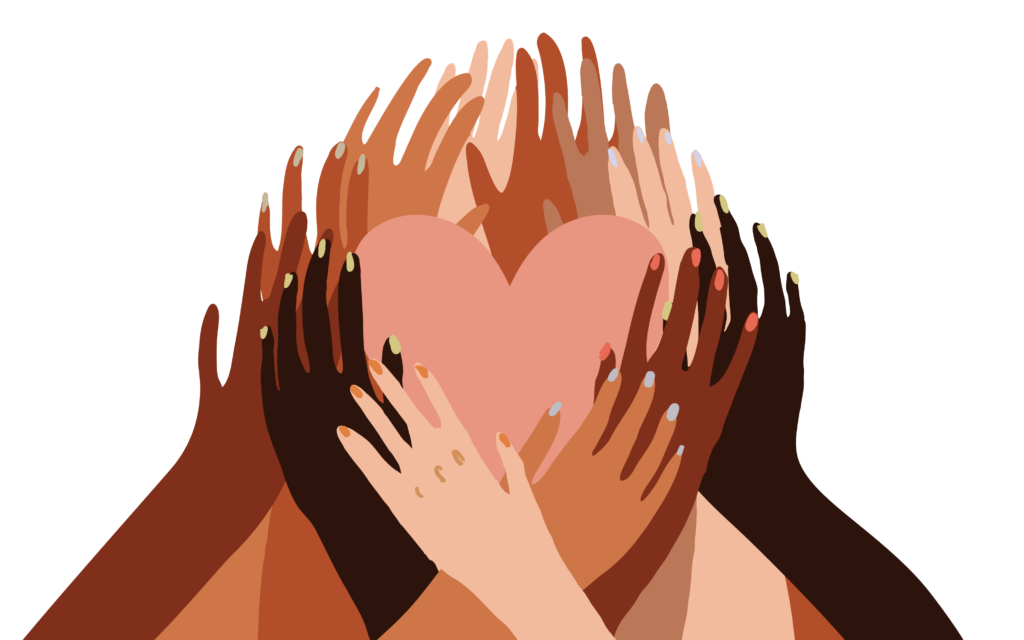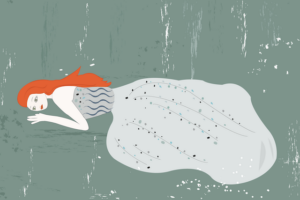How Disgrace Retains Us Hostage to Racism

Welcome to the fourth article on this collection on racial therapeutic with mindfulness. With these articles and practices, we’re navigating uncomfortable truths about race, racism, and the othering that exists in our very ethnocentric mainstream tradition. Collectively, we’re working towards a extra compassionate, sort world, which begins with trying inward. You will discover the earlier articles of this collection right here:
Please ship your questions on racial therapeutic and mindfulness to [email protected] and so they could also be answered in a future article.
The muse of racial therapeutic is emotional work. The truth is, most long-term therapeutic entails deep exploration of feelings. Luckily, many people have come to acknowledge that the competencies we name “emotional intelligence”—which we’ve termed to be “tender abilities”—are actually the rock-solid foundation of significant and productive change. The flexibility to manage feelings is a superpower.
Most individuals know feelings like happiness, unhappiness, anger, and worry as the large 4 of their emotional vocabularies, and never a lot else. With the intention to heal, we should develop the power to lean in to the discomfort of different feelings. As we develop the stamina to look extra rigorously at racialized experiences, we start to acknowledge how a lot emotion that racism elicits. One in every of these key feelings is one which we are inclined to need to keep away from most: disgrace.
On this article, the invitation is to take a deeper dive into the function disgrace performs in holding us from participating in racial therapeutic—actually holding us hostage from any productive reflection or conversations about race and our racialized identities and experiences.
Disgrace Drives White Fragility
My definition of White fragility is: a set of behaviors that make up a survival response by White folks to each shield the sense of benefit that’s there, and to keep up their sense of emotional security.
After a long time of this work, I’ve seen that disgrace is definitely the underlying emotion of the discomfort that primarily drives fragility. When White folks discover fragility, it could convey up uncomfortable emotions like guilt and disgrace. This discomfort makes an alarm go off of their head that claims “Abort! Cease the method! That is simply an excessive amount of!” That is usually the place folks take the exit ramp again to consolation. The antidote is to welcome these cues and get curious, as that is exactly the place the true work of racial therapeutic begins.
I lately had a dialog with my colleague and pal Cara Jones on her podcast Untethered Voice, the place she shared her expertise of racialized disgrace as a White individual. Within the second of her disgrace she felt embarrassed and insecure, however she investigated and regarded deeper into that discomfort. Immediately, she says that second helped set her on a path to discovering her voice.
Our capacity to be resilient and really heal comes from our capacity to maneuver via disgrace and develop into extra compassionate, extra linked, and extra brave with ourselves. After we can try this, we’re in a position to be higher allies towards one another.
In lots of circles, therapeutic has been glorified as one thing fashionable, however it’s greater than a fad. It’s very obligatory, and it could’t be rushed; therapeutic takes the time it takes. Therapeutic requires an excavation and permits for progress, and when it’s tended to correctly, its outcomes that far exceed our expectations. But we tend to guard ourselves from this blossoming as a result of it requires releasing our cautious management of what feelings we let into our consciousness and which of them we maintain at bay, like people who really feel unfamiliar or overwhelming.
As we be taught to make room for uncertainty in our racial therapeutic, we are able to give up any judgment or expectations which will come up for ourselves (in addition to others). We might imagine we are able to predict our therapeutic journey after which judgments and expectations can creep in that trigger us to marvel, “Am I getting this proper?” Am I doing sufficient? Am I sufficient?” After we let go of those judgments, we start to acknowledge what sort of progress is feasible.
One of many many advantages to mindfulness observe is that it makes us extra delicate to all of the somatic indicators being despatched inside our physique. After we can give up and anticipate new methods of being, the pathways to progress become visible in a complete new method. As you acknowledge how disgrace would possibly present up for you in your physique (sweaty palms, tightening abdomen, tightened jaw, and so forth), you may be taught to detect it extra rigorously as useful data fairly than an emotion to keep away from.
Taking this chance to look at disgrace extra carefully might help us be taught to launch management. Disgrace definitely can maintain folks hostage, so it’s essential to grasp that marinating in guilt and disgrace doesn’t create robust allyship; a conscious method to racial therapeutic permits us to make use of the sensation of disgrace as data, an indication of feelings to navigate fairly than a sign to disengage.
A Nearer Look—Defining Disgrace
Being a Licensed Dare to Lead Facilitator, personally skilled by Dr. Brené Brown, internationally acknowledged researcher on disgrace, I lean closely on her educating about disgrace and use my a long time of experience in emotional intelligence and racial therapeutic to assist us join the dots to help us in our therapeutic and transformation. Dr. Brown says, “Disgrace is the intensely painful perception that we’re flawed and subsequently unworthy of affection and belonging.”
Disgrace is an outdated acquainted feeling most of us have skilled in some unspecified time in the future in our lives. It’s that feeling that we’re simply not adequate. Disgrace is carefully linked to guilt, which is the concept that we did one thing dangerous, however disgrace is that deeper sense that we are dangerous. Since all of us expertise disgrace in some unspecified time in the future in our lives, with the ability to acknowledge it’s key. It’s not one of many large 4 primary feelings (blissful, unhappy, offended, afraid) so we aren’t excellent at naming it when it comes up.
Racial therapeutic work requires connection—to self and to others—and disgrace makes that unimaginable.
Brené Brown tells us disgrace is definitely the a part of our psyche that kills connection and a heartfelt sense of belonging. Let that sink in: disgrace kills connection and a heartfelt sense of belonging. Disgrace performs a key half in racial therapeutic because it retains us from being comfy in racialized conditions. Disgrace retains us hiding in disconnection, avoiding racialized conversations, and stopping us from inspecting our biases. Racial therapeutic work requires connection—to self and to others—and disgrace makes that unimaginable.
How Disgrace Works
A part of racial therapeutic work is to concentrate on the lens you’re trying via, both as an individual of colour or a White individual. Then, we are able to begin by asking ourselves: How would possibly disgrace be displaying up for me, acknowledging my racialized expertise?
Dr. Brown provides us three truths about disgrace in her e-book Dare to Lead::
- All of us have it.
- We’re all afraid to speak about it.
- The much less we discuss it the extra management it has in our lives.
Our capacity to be resilient and really heal comes from our capacity to maneuver via disgrace and develop into extra compassionate, extra linked, and extra brave with ourselves. After we can try this, we’re in a position to be higher allies towards one another.
Disgrace has a physiology to it. As now we have discovered via neuroscience, the mind reacts to social ache in the identical place it reacts to bodily ache. That’s why these more difficult feelings have such energy over us. We typically battle to handle the discomfort. So, should you can establish how disgrace feels for you and the place disgrace hooks you, then you will get unhooked from it.
This course of can take a very long time, and sometimes entails plenty of forgiveness, usually beginning together with your capacity to forgive your self and prolong self-compassion.
Typically, untangling from disgrace takes using a conscious pause and consciously shifting within the second. When disgrace arises, take a breath and say to your self, “Oh that is disgrace. That is how that feels.” You’ll be able to practice your self to acknowledge the sensation of disgrace simply as you’d some other emotion. The method is just like the steps for recognizing and interrupting actions primarily based in bias.
From this place of consciousness and recognition of what it’s we’re feeling, we’re in a position to self-regulate and proceed on within the technique of racial therapeutic, stay in dialog, and keep connection.
Racialized Disgrace
Relating to racialized disgrace, we discover the ideas of internalized oppression and internalized racism and the way they result in disgrace in several methods.
Disgrace and BIPOC
As we start unlearning and studying our method out of our personal racialized conditioning, the cultural injury is simply as advanced for Black, Indigenous, and Folks Of Shade (BIPOC)it simply exhibits up in another way. Typically, now we have to heal from feeling less-than, after a whole bunch of years of being made to really feel as if we’re not adequate. We show ourselves, we tackle “White methods” to be able to succeed, we might even internalize discrimination by enacting colorism, which exhibits up in beliefs like, “who’s lighter is righter.”Even inside our BIPOC neighborhood, there are specific racialized folks that we are going to say are nearer to the White spectrum, and make comparisons about who’s extra acceptable to White folks. We are able to go down the road, Black folks normally final, Asian folks normally first.
Internalized oppression has gone on for a whole bunch of years within the Black expertise, usually stemming from slavery, mirroring the ache from being characterised and designated as both a “subject slave” or a “home slave.” Immediately, the kind of work that we might interact in, how “professionally” we converse or costume or act can usually be summed up in assimilation. To assimilate is to show ourselves as “sufficient” by the measure of how shut we are able to get/be to “Whiteness.” How a lot have we surrendered our personal cultural roots, for the sake of getting it simpler on this nation of systemic whiteness?
Disgrace and White Folks
White folks usually uncover guilt in regards to the ancestral privilege and day-to-day privilege that they’ve. The fascinating factor about guilt is that it focuses on habits, “I did one thing dangerous.” And guilt has the potential to encourage folks in direction of change. When White folks really feel a way of guilt, they have an inclination to need to take motion. Whereas guilt doesn’t really feel good, it really works that method for lots of us.
Disgrace, then again, is the sensation or perception that, “I’m dangerous,” and focuses on the self, not the habits. The result’s that it usually makes us really feel disconnected and alone. The secret’s this:Disgrace has by no means been recognized to result in constructive change as a result of disgrace typically causes hiding and inaction.
Disgrace Shields
As a response to the load of the disgrace, we be taught and situation ourselves to make use of what Brené Brown calls the three “Disgrace Shields.”
1. Transferring Away is whenever you’re attempting to guard your self from disgrace. Possibly you withdraw, disguise, maintain secrets and techniques, or keep away from. That’s typically referred to as “gatekeeping habits,” and it comes up when you’re wanting to maneuver away from a state of affairs.
Generally folks withdraw to an affinity area, which may be one other method of utilizing the defend of shifting away, but it’s extra nuanced than others. Affinity areas are obligatory and supportive, but not when used as a method to cover or keep away from mixed-race areas and racial therapeutic. I’ve supported the therapeutic of many White individuals who had extra ingrained deepened layers of disgrace resulting from their time spent solely in White segregated areas. The sensation of “I’m not adequate or worthy to be with BIPOC as a result of I’ll trigger hurt” has a shame-inducing impact.
2. Transferring Towards usually exhibits up as “please and appease.” It’s typically the place many BIPOC will go into the conditioning of defending White folks’s proper to consolation. It’s additionally typically the place White folks can be agreeable impulsively by any means obligatory, realizing their fundamental goal is to only get out of “this dialog” as rapidly and easily as potential. (White folks normally aren’t aware that their fragility is what’s driving them to behave on this method, whereas BIPOC have a tendency to acknowledge it rapidly.)
3. Transferring Towards is gaining “energy over, aggression, combating disgrace with disgrace.” In a racialized context I see this as essentially the most important symptom of a deep lack of connection. It appears like statements and behaviors that sign: “I cannot join with you. I’ll leverage privilege and standing. I’ll lash out and snap-back.”
As a Black girl, when I’ve used this defend, it confirmed up as performativity because it does for lots of BIPOC. We’re raised on the idea that now we have to do extra, be higher. That’s our messaging, “You’re going to need to work 3 times as arduous simply to be on the desk.” It results in a sense that we have to show what I confer with as our “enoughness.” That’s combating disgrace with disgrace and “hustling for our value” (one other favourite Brené time period for all of you Brené Brown followers).
All of us have our shields, and it’s not a matter of if we use them, it’s a matter of which defend and with whom, and once we will use one. Using the shields is situational and might range. It’s crucial that we be taught to acknowledge disgrace in our our bodies and psyches and observe interrupting it once we are triggered by disgrace. Then we are able to navigate disgrace skillfully and never attain for the shields of disconnection however as a substitute deliberately domesticate connection.
Transferring Towards Empathy and Compassion With Mindfulness
With these understandings about disgrace, you at the moment are extra geared up to proceed reflecting in your behaviors and beliefs that dictate the way you present up, out and in of racialized areas. Brené Brown’s analysis exhibits that the important thing antidotes to disgrace are empathy and compassion. Empathy and compassion are additionally key teachings in our mindfulness work and there’s a plethora of assets and meditations to help our progress on this space. Science additionally teaches us that constant meditation observe helps the event of the a part of our mind referred to as the insula, which deepens our capacity to be extra empathetic and compassionate.
I consider that the ultimate purpose in racial therapeutic is to develop deep and lasting compassion throughout variations, and that comes from constructing advanced understandings that result in sturdy cultural humility. This course of can take a very long time, and sometimes entails plenty of forgiveness, usually beginning together with your capacity to forgive your self and prolong self-compassion.
To get began, discover:
- A meditation observe. Tuning into the physiological cues round emotions of disgrace will assist heighten your consciousness when it comes up and supply a possibility to discover it and transfer via it.
- The Aware Pause. This observe enhances the meditators software field. Taking a second to breathe and course of the disgrace that arises helps folks embrace discomfort throughout the studying course of by extending love, care, and compassion throughout variations.
- Becoming a member of or beginning a neighborhood with a shared purpose of racial therapeutic. Encouraging folks to interact in racial therapeutic collectively builds computerized communities of care working to save lots of humanity. The fervour and power created in these areas transform highly effective and enduring connectors.
Go there. Give up management and go all in. On the identical time, be mild with your self, as you start to actually replicate and unlearn. And naturally, get severe about forming a gaggle of courageous fellow vacationers on this journey. Racial therapeutic shouldn’t be for the faint of coronary heart. It requires braveness and is critical for every one in all us devoted to creating constructive change in our world.
Journaling Prompts for Reflection
1. Notice the whole lot you may consider about your relationship with disgrace. Do you are feeling ashamed on a regular basis? Possibly you haven’t ever felt disgrace. Do you are feeling disgrace in the case of race and racism? Discover the whys of all of that. Give your self time to jot down down the whole lot you may consider on the subject of disgrace and your expertise with it.
2. Take into account basic questions you’ve gotten about disgrace and the way it operates. Write them down and let concepts move freely to get to deeper questions. Within the security of your private journal, give your self permission to discover and say belongings you is perhaps scared to even assume. (In the event you like, you may even e-mail your inquiries to yourwords@conscious.org and I could reply to them in an upcoming article.)
3. Take into account the forgiveness that should occur as part of the method of unearthing and therapeutic from disgrace. Are there issues it’s essential to take into account forgiving somebody or a gaggle of individuals for? Are there issues it’s essential to forgive your self for? If nothing comes up straight away, begin writing and see what comes up.
In the event you haven’t already, now is perhaps a good time to ask somebody in to debate these concepts with. Accountability companions are key. Be sort to your self, and maintain going
A Guided Meditation for Working With Disgrace
On this meditation we’re going to domesticate disgrace resilience, constructing resilience in our response to disgrace and enabling us to usher in larger self-compassion.
- I invite you to sit down comfortably together with your gaze down or shut your eyes. And easily take three deep breaths, simply signaling to your physique that we’re about to do that. Merely permit your respiration to settle at a rhythm that feels comfy for you. Possibly interact in respiration that’s somewhat bit slower than traditional, and possibly somewhat bit deeper than traditional. Let’s be conscious to take deep breaths down into our abdomen and never shallow in our lungs. You’ll be able to really feel that depth in your respiration. Simply noticing. Let’s simply sit collectively for a second in silence.
- As we put together to acknowledge and have interaction with disgrace, I simply need to take a second to remind us that guilt and disgrace can really feel very related, however they’re very completely different concepts and feelings. Guilt is pushed by ideas and emotions like, “I really feel dangerous about what I did,” or “What I did was dangerous.” Keep in mind that disgrace is pushed by ideas and emotions like “I am dangerous,” “I really feel dangerous about myself,” “I’m not sufficient.”
- Whereas it’s completely tremendous and wholesome to really feel guilt once we make a mistake or do one thing that’s dangerous to somebody, there’s actually nothing wholesome about feeling disgrace about trustworthy errors or missteps alongside the lifestyle. Disgrace is poisonous. It actually may cause us to shrink and conceal. Disgrace may cause us to behave in methods that may be dangerous or unproductive, and—even worse—merely not interact in any respect. Disgrace could make us really feel sufferer to essentially harsh ideas and judgments, particularly about ourselves.
- So allow us to take a brief journey collectively, exploring how disgrace exhibits up and allow us to permit for therapeutic. Allow us to permit ourselves to go deep sufficient to interact in a degree of therapeutic collectively that may help us as we interact out on the earth.
- Simply returning to the breath, giving consideration to the breath. The inhale and the exhale.
- Allow us to first simply acknowledge what disgrace seems like in our our bodies. I invite you to think about a time the place you felt a way of disgrace. And possibly you don’t need to convey up one thing too triggering or too overwhelming. You simply need one thing accessible, however belief your self. What are you prepared to interact with inside your self? No matter has arisen so that you can work with might be what’s value working with. Simply bringing that point, that incident to thoughts. Seeing it once more. Feeling it once more. The place are you feeling the disgrace in your physique?
- Discover the sensations which might be indicating disgrace. Possibly you are feeling it in your jaw. Possibly you are feeling it in your shoulders. Possibly your respiration has develop into shallower. Possibly your abdomen is tight, palms are sweaty, underarms sweaty. Simply noticing. There’s no proper or incorrect. That is merely your physique and your feelings speaking with you. And the way pretty it’s to have the ability to discover and have this communication by simply opening our consciousness to what’s occurring in our our bodies. As you’re exploring this reminiscence of disgrace, noticing the way it’s displaying up in your consciousness, what is perhaps beneath this sense of disgrace? Breathe deeper into that.
- What is perhaps beneath the sensation of disgrace? Is it the sensation of not sufficient? Is it the sensation of needing to be good? Is it the sensation of defensiveness, being guarded, needing to guard? What’s beneath the disgrace? Taking time to convey that into our consciousness and to note. Bringing within the sense of curiosity and noticing.
- What is that this educating me about myself? What is that this educating me about my relationship to disgrace? What’s inflicting me to really feel that I’m dangerous? Simply be curious. Discover it. I can really feel you actually leaning in and I’m with you.
- We’re on this collectively. You aren’t alone. And allow us to deepen in our therapeutic round disgrace. Allow us to usher in and embrace compassion. What I really like about compassion that I need to invite us into is, are you able to speak to your self the way in which that you simply speak to somebody you’re keen on? Maybe enthusiastic about what occurred round disgrace or making a mistake. How would you lovingly converse to your pal, your colleague or member of the family who was feeling the identical method or made the identical mistake? What would you say to them that will be supportive and sort and loving.






